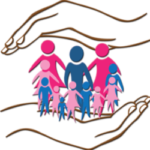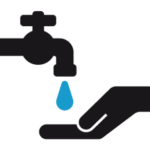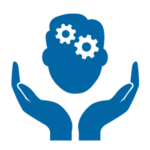Program Areas
INDF-Uganda’s core program areas center on Human Rights, Health, and Community Development

Child Protection
.

Education
With support from our partners and sponsors, We ensure that every child gets the opportunity to go to school because it is through education that young people can break the cycle of poverty
and live a hopeful future.
The students/pupils are provided with tuition fees, learning materials and uniforms in so that they can attend school. Parents/guardians are also encouraged to contribute some scholastic materials e.g. books, pens etc. where possible. Regular school monitoring visits to check on the progress of the students are done as well.
You can help to ensure the education of our children, by taking over a personal sponsorship for a child.
The Ugandan School system starts with Primary School(lasting 7 years),then Secondary School for O’Level[4 years] and A’Level[2 years] (lasting 6 years). On completion of O’Level, the students have the opportunity to go for Vocational Training or continue with A’Level and then join University. The Ugandan school year consists of three terms, which all require payment of school fees.

Economic Strengthening
We provide vocational and life skills for youths and women. We train beneficiaries, equip them with skills and startup tools in the trades of Carpentry and Joinery, Tailoring and Garment Cutting ...
Hair dressing and styling, Motorcycle Mechanics, Computer Applications, Knitting, Bricklaying and Concrete Practice, molding and crafts and Electronics.
Need: all parents want to give their children a roof over their heads, food in their bellies and clothes. One of the ways to help the youth and women to create a world where they can achieve their full potential is by helping them acquire skills to become financially stable and self-reliant. A majority of our youth and women are school dropouts pressured by poverty rendering them idle and hence wasted.
Your donation towards this will help change the face and trend of events in the lives of the target group (s) thus improve standards of living in their household (s)
as global demand for food, fodder and bio-energy crops grows, climatic variability increases, diets change and natural resources are depleted.
To reduce hunger, improving agriculture on small farms is critical. INDF-UGANDA is committed to helping parents provide for their children by improving the productivity, sustainability and resilience of small farms in three ways:
- Protecting the natural resource base on which agriculture depends
- Empowering families and interdependent communities
- Promoting just systems and structures
While many countries are making great progress toward achieving the 2015 Millennium Development Goal of halving the proportion of people who suffer from hunger, achieving food security in sub-Saharan Africa remains a great challenge. Specific to its work in Masaka, Lwengo and Bukomansimbi Regions, INDF-Uganda promotes three core approaches:
- Soil Conserving Agriculture
- Savings Groups
- Farmer Managed Natural Regeneration of Trees
These core approaches help build the livelihood capitals of smallholder farmers and thereby build well-being and enhance resilience against shocks. It is on this foundation that other programming interventions build.
Unlocking Women’s Potential In Kitanda Region, Bukomansimbi District
Kitanda Sub-county is the poorest region in Bukomansimbi, Uganda, with over 80% of the population living below the poverty line. The people in Kitanda are amongst the most marginalized and are largely excluded from mainstream health and development planning.
Here, providing sustainable, practical solutions to healthcare issues is key. Women in the region are the gatekeepers to their communities’ health, so leveraging their power unlocks opportunities.
Uganda is one of the poorest countries in the world. Whilst images of rural poverty in Uganda are common, often less attention is paid to the increasing number of people who live in rural places. INDF-Uganda is in the pole Position to unlock and change the current state of events using its experienced staff. Resources inform of funds are needed to help in the process and we ask for your hand of support towards this as we work towards attaining the 17 Sustainable Development Goals.

Health, Water, Sanitation and Shelter
INDF-UGANDA is improving the health of communities living within Lwengo, Masaka and Bukomansimbi regions, by improving the access to water and sanitation facilities in these communities ...
The informal settlements in Lwengo and Bukomansimbi district have high levels of poverty, poor housing and illiteracy. Sanitation is a particular issue. In these areas, 18% of the community does not have access to a latrine, 32% have no access to water and 96% of latrines do not have hand washing facilities. Many women who are in charge of waste disposal in their communities do not have the tools or the knowledge to collect and dispose of waste safely. This leads to the spread of diseases such as cholera, typhoid and childhood diarrhea – one of the leading causes of deaths in under-fives. With good sanitation and consistent access to healthy drinking water these conditions are easily preventable.
The Project:
1. Improves access to safe and affordable Water, Sanitation and Hygiene services in the mentioned regions.
2. Increases the use of safe water sources and improve attitudes and practices towards hygiene and sanitation.
3. Increases the capacity of local water and sanitation Community Health Volunteers and outreach workers.
4. Gives women greater confidence and skills to look after their communities and a belief in their ability to improve opportunities in life.
Our impact
1. Direct beneficiaries: 250
2. Indirect beneficiaries: 28,928
3. Health workers trained: 27
4. Women benefited: 8,900

Health projects and outreaches
As part of the INDF- UGANDA Health Project, home outreach program days have been organized throughout the year to improve awareness and health HIV/AIDS patients within various Villages.


Kitanda Sub-county is one of the poorest and most remote areas of Bukomansimbi District. Before 2015, the death rate for mothers and children was incredibly high because the community had limited access to malaria treatment, HIV/AIDS and maternal health services. Until recently, there were very few health workers in the area and people had to travel a great distance to visit hospitals or clinics in Masaka.
In 2016, INDF-UGANDA started working with local communities to make positive health changes. An integrated Maternal, Newborn and Child Health (MNCH) project was set up, with a specific focus on malaria prevention. The project enabled the most vulnerable members of the community to access the vital health services they need to fight one of Africa’s most dangerous diseases. And soon INDF-Uganda is planning to set up a Health Center to cater for all members in this region
The project supports the community by:
- Empowering people to prevent and control malaria and other diseases such as TB and typhoid.
- Increasing access to effective malaria prevention and treatment for mothers and children.
- Training local health workers to manage and control malaria and other communicable diseases.
INDF-UGANDA’s approach is always non-profit making, providing local people with the skills they need to bring better health to their own communities. All 41 villages involved in the project have held successful Village Health Days supported by INDF-UGANDA, with increasing numbers of participants. The days focus on educating the community on malaria diagnosis and ways to prevent malaria from spreading and are also used for general health education and environmental cleaning.
Our impact
- Direct beneficiaries: 574
- Indirect beneficiaries: 55,104
- Health workers trained: 28
- Women benefited: 34,629
- Children benefited: 10,614

Psychosocial Support and Basic Care
To restore hope and a give a sense of belonging to the sick, We provide counselling and provision of basic needs to the unfortunate so they are encouraged to continue with life ...
We do;
- Mass sensitization and trainings on HIV/AIDs prevention, Hepatitis B, Malaria, diahorrea among others
- Guidance and counseling, blood testing and referral services of the HIV/ AIDs persons to health facilities
- Distribution of health equipment to health units for example; Beds, treated mosquito nets
Need:
Poverty and health are closely related; without nearby health care facilities with trained staff in the region as well as access to clean water and nutritious food, communities are more susceptible to disease, malnutrition and infection. Helping improve children’s health and rendering the same to other poor community members is a key component of INDF-UGANDA’s work, because without good health and access to medical care, children and poor community members cannot achieve their full potential and health.
Your charity giving will make our work to improve children’s/ peoples health in the communities possible.